Tencent's Overseas Game Investment "Timeline": Nearly 100 Moves, Standing Behind 3A Blockbusters
![]() 08/06 2024
08/06 2024
![]() 682
682
In the summer of 2024, three 3A games reignited heated discussions among global gamers in different ways.
At the opening ceremony of the Paris Olympics, a mysterious parkour torchbearer evoked memories of the iconic characters from the 'Assassin's Creed' series. Developed by French gaming giant Ubisoft, this IP has accumulated a vast fan base globally over the years. Among them, 'Assassin's Creed: Unity,' the eighth installment set during the French Revolution, is one of the most renowned and best-selling titles in the series.
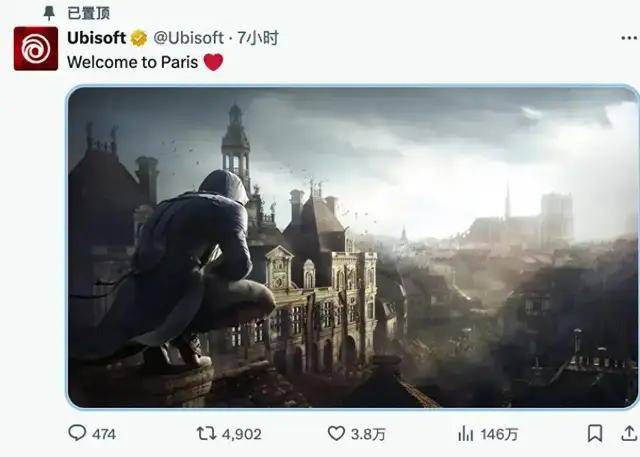
Many gamers even joked while watching the opening ceremony, "I've run this section many times in the game." This fusion of game art and reality also brings to mind the 2019 Notre-Dame Cathedral fire in Paris. At the time, rumors circulated that the brick-by-brick 3D model of Notre-Dame in 'Assassin's Creed: Unity' could become an essential reference for restoration work.
Of course, this was later proven to be a beautiful imagination of some media and players, as the intricate details of Notre-Dame far exceeded public imagination. However, the significance of games to history and the real world has been validated.
Similarly, this summer saw the highly anticipated release of the 'Elden Ring' DLC, reigniting players' enthusiasm. Developed by From Software, the game won the Game of the Year award in 2022, and the launch of the Shadows of the Golden Tree DLC was undoubtedly a major event in the gaming industry this year.

Shift Up, known as the 'Korean MiHoYo' (one of the most popular Korean game companies in recent years), went public this summer. Its game 'Sword Star' sparked heated debates among global gamers due to its modeling and skins.

Behind these three game companies stands a common figure - Chinese internet giant Tencent.
In September 2022, Ubisoft announced that Tencent had acquired a 49.9% stake in majority shareholder Guillemot Brothers for €300 million, doubling Tencent's shareholding in Ubisoft to 9.99%. In August of the same year, Tencent became the second-largest shareholder of From Software (FS), holding a 16.25% stake. FS is the developer of 'Elden Ring'.
With Shift Up's successful IPO, the biggest winner, besides Kim Hyung-tae on the surface, can be said to be Tencent, one of the biggest beneficiaries behind the scenes. In addition to the two companies' collaboration on 'Project Nikke: Goddess of Victory' (another mobile game by Shift Up), Tencent was also one of Shift Up's earliest investors.
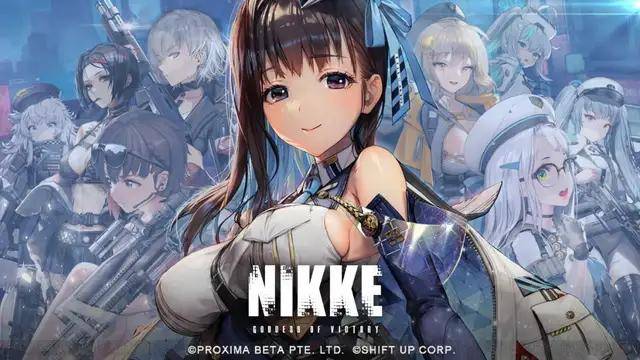
Public records show that Tencent's Singapore investment arm, Aceville, became the second-largest shareholder of Shift Up with a 35% stake, second only to Shift Up founder Kim Hyung-tae's 39.1%.
Of course, these three investments are just a small part of Tencent's vast global game investment landscape. Why does Tencent consistently make such astute investments in overseas games? What is the logic behind its investment strategy? Let's explore from Tencent's timeline of overseas game investments.
01
Tencent Game Investment Timeline
Based on the views of Xueqiu user Aishuang Nuosi, Tencent's overseas gaming business primarily takes four forms: First, investing in overseas game companies, some of which contribute directly to revenue through consolidation, but most are minority stakes and form the backbone of its current overseas gaming business.
Second, directly exporting domestic games, with 'Honor of Kings' being a representative example. While this segment has faced challenges, recent progress has been made, with 'Honor of Kings' International announcing that its cumulative global registered user base has surpassed 50 million. According to SensorTower, downloads of the game have surged 6.6 times since June, ranking first in the Southeast Asian market.
Third, establishing overseas branches for domestic studios, with Timi Studio Group and Lightspeed & Quantum Studios being representative examples. However, these efforts are still incubating and have yet to produce mature products.
Fourth, acting as a publisher, such as through the newly established overseas publishing brand Level Infinite. This segment allows for collaboration with numerous investment companies, enhancing Tencent's voice in the overseas industry chain and competing for a larger share of game revenue.
This article focuses on investments in overseas game studios.
Early Exploration Phase (2005-2008)
In 2005, Tencent made its first investment in a foreign game company, strategically investing in Korean pet game company GoPets. This marked Tencent's earliest attempt at overseas game investment.
In 2007, Tencent acquired the Chinese agency rights to 'CrossFire' and 'Dungeon & Fighter' from Neowiz and Neople, respectively. These two games fueled Tencent's explosive growth in gaming, making 2007 a pivotal year for its online gaming business.
In 2008, Tencent established its Investment and M&A Department, marking the beginning of its reputation as China's Berkshire Hathaway. That same year, Tencent invested in American game company Riot Games.
Rapid Expansion Phase (2011-2018), Focusing on Mobile and PC Game Developers
In 2011, Tencent acquired a 93% stake in Riot Games for $400 million, followed by the remaining 7% in 2015, making Tencent Riot Games' 100% owner.
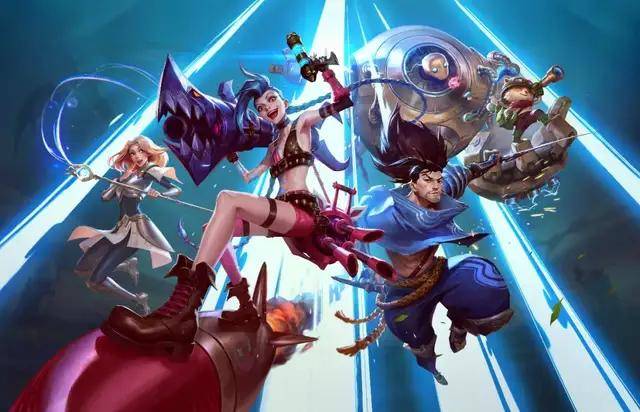
In 2012, Tencent acquired a 40% stake in Epic Games for $300 million, then valued at $750 million. By 2022, Epic Games was valued at $31.5 billion, a more than 40-fold increase over a decade. Latest data shows Tencent holding nearly half of Epic Games' shares, a highly profitable investment. Moreover, the strategic value in game technology and the Unreal Engine far surpasses financial returns.
Beyond the Unreal Engine, Epic Games is also the creator of popular titles like 'Fortnite' and 'Gears of War.' The company operates its own digital game distribution platform, the Epic Games Store.

In 2016, Tencent acquired Finnish mobile game developer Supercell for $8.6 billion, its largest and most significant investment that year. Supercell boasts popular global games like 'Clash of Clans,' 'Hay Day,' 'Boom Beach,' 'Clash Royale,' 'Brawl Stars,' and 'Brawl Pass.'
Comprehensive Layout Phase (2018-Present)
During this period, Tencent shifted its focus to game developers producing 3A blockbusters and high-quality titles, primarily PC/console game studios.
Many of these studios' works have shone at the Game Awards, the Oscars of the gaming world.
In 2019, financial documents from Larian Studios revealed that Tencent held a 30% stake in the studio. Some speculate Tencent invested around September 2018, coinciding with the studio's restructuring. At the 2023 Game Awards, 'Baldur's Gate 3' won Game of the Year, Best Performance, Best Community Support, Best RPG, Best Multiplayer, and Players' Voice.
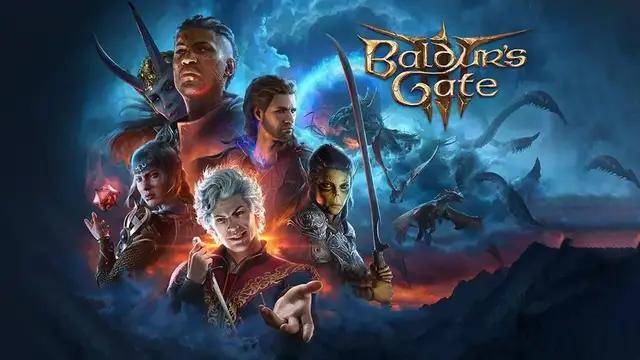
In 2022, Tencent invested in From Software through its subsidiary Sixjoy Hong Kong, acquiring a 16.25% stake and becoming the company's second-largest shareholder. From Software developed 'Sekiro: Shadows Die Twice' and 'Elden Ring,' which won Game of the Year at the 2019 and 2022 Game Awards, respectively.
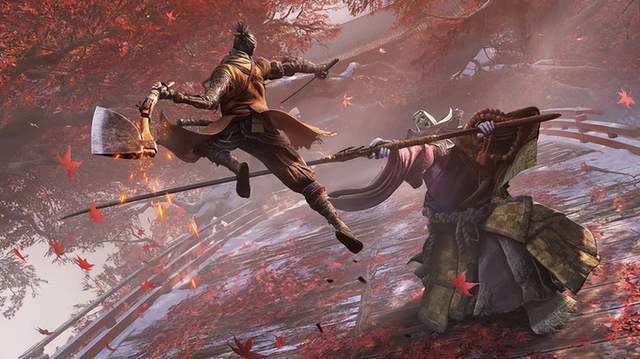
Incomplete statistics show that over the past two decades, Tencent has made nearly 100 overseas game investments in over 80 companies.

Beyond funding 3A blockbusters, Tencent continued investing in overseas markets in 2020 and accelerated the establishment of overseas game studios, such as in the US, Canada, and the UK.
In 2021, Tencent Games announced the launch of its international business brand, Level Infinite, marking a new stage in its globalization.
In 2023, Tencent brought multiple games to the global market through Level Infinite, including 'Arena Breakout,' 'SYNCED,' and 'Wayfinder,' demonstrating its continued investment and development in overseas gaming markets.
02
Evolution of Tencent's Game Investment Strategy
Tracing Tencent's investment timeline reveals an evolving game investment strategy, a process of continuous learning, adjustment, and improvement.
From early investments in small innovative teams to later focusing on mature, large-scale developers.
From primarily investing in mobile and PC games to gradually emphasizing console and 3A blockbuster developers.
Investment goals shifted from financial returns to acquiring IPs, gameplay innovation, and technology accumulation.
From passive minority stakes with minimal intervention to parallel full acquisitions and self-built overseas studios.
From initial exploratory investments to a comprehensive global layout, Tencent has gradually established a complete global gaming ecosystem encompassing R&D, publishing, esports, and the entire industry chain.
One characteristic is diversification, enabling Tencent to adopt the most suitable strategy based on different situations, preserving investee companies' independence and creativity while facilitating deep integration when necessary. This flexible approach maximizes Tencent's global resources and advantages.
Second, balancing financial returns with strategic value. Tencent's investment strategy prioritizes strategic value, recognizing that strategic value leads to better financial returns. For a gaming giant like Tencent, investments without strategic value are not worthwhile.
Third, global layout with localized operations. Gaming is known as the ninth art, and game investments involve more than capital competition; they're about cultural fusion and ideological clashes.
In this process, Tencent has demonstrated strong learning capabilities and strategic vision. This multidimensional evolution not only helps Tencent establish a foothold in the global gaming market but also shapes it into a truly international gaming company.
03
The Imagination of Overseas Game Markets
According to Gamma Data, the global game market reached RMB 1,177.38 billion (approximately $164.7 billion) in 2023, a 6.00% year-over-year increase. It is expected to reach $272.86 billion in 2024, with a CAGR of 9.32% from 2024 to 2029. This growing market offers ample room for Tencent's globalization strategy.
According to Mordor Intelligence and Sensor Tower, various regional markets exhibit distinct characteristics:
Asia-Pacific: The world's largest game market, dominated by China and Japan. China has the highest game spending, but Japan's per capita spending is higher. Mobile games and growing player numbers drive this market.
North America: The second-largest game market, centered on the US and Canada. Players here have strong spending power, with an ARPU of $200.94 in 2021.
Europe: The third-largest game market, including Germany, the UK, and France. While downloads have declined, revenue continues to grow.
Latin America: The fastest-growing region, with a CAGR of 12.47% from 2017 to 2021.
Middle East and Africa: Emerging markets with significant growth potential.
In an interview, Ma Xiaoyi mentioned that Tencent divides the complex global market into three primary battlegrounds:
The first is China, with around 600 million users, transitioning from rapid growth to maturity. Users demand higher product quality, and each genre is dominated by leading companies, but novel gameplay is rare.
The second is Europe, America, and Japan, truly mature markets with around 500-600 million users. While smaller in scale, revenue is over twice that of the entire Chinese market. PC games dominate, with mobile games accounting for only a third of the market. Many successful gameplays originate here before expanding to larger markets.
The third is emerging markets like rapidly growing Latin America, Southeast Asia, and the Middle East, with roughly 1.2 billion users but potentially only half the revenue of China. However, these markets offer opportunities for new dominant gameplays and so-called 'national games.'
From Tencent's first overseas investment in 2005 to its current standing behind various 3A blockbusters, its overseas game investment journey has witnessed significant changes in the global gaming industry.
Tencent's globalization journey also reflects the evolving role of Chinese tech companies on the international stage. However, globalization isn't without challenges, including cultural differences, policies, regulations, and market competition.
In the wave of globalization, how can we balance local characteristics with international needs? How do we find a balance between commercial interests and social responsibility? How will the development of the gaming industry influence global cultural exchanges and value formation? These questions concern not just Tencent but the entire gaming industry and the globalization process.







